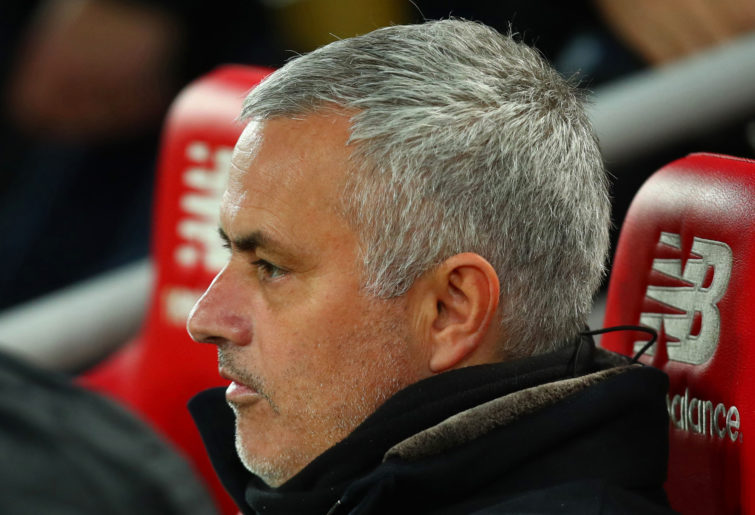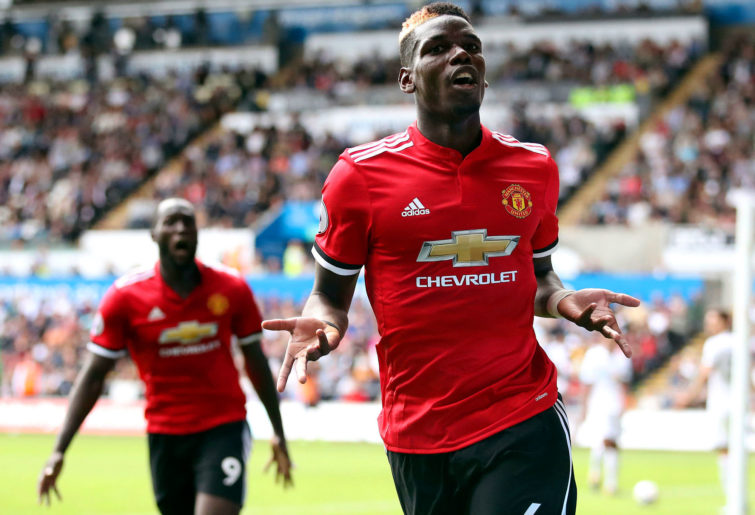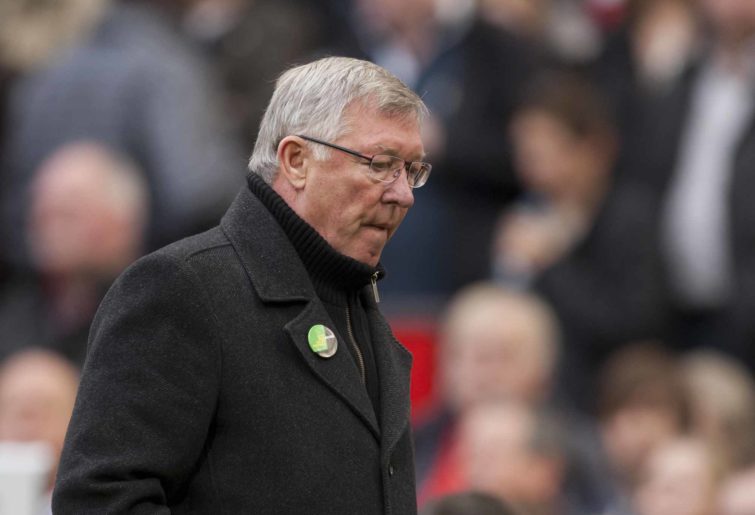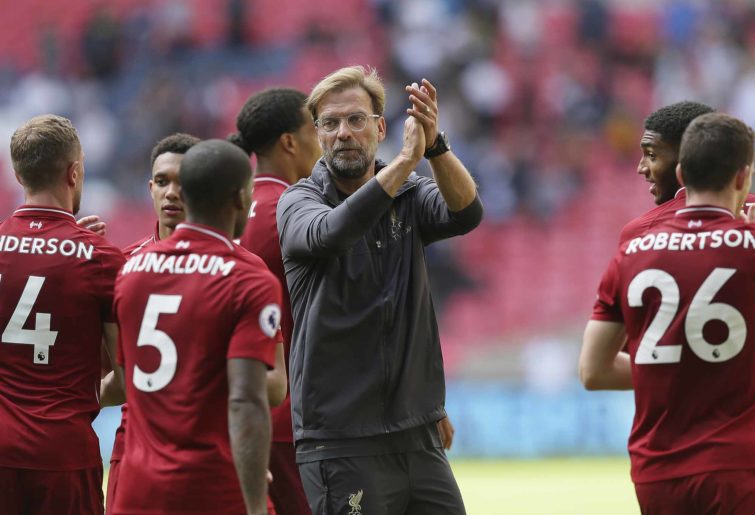2018 is almost over for Manchester United and a case could be made that the club would be glad to see the back of the year.
Yes, the 2017-18 season could be argued as a positive step forward for the club in that domestically they finished second with a strong points tally that would be good enough to win the league in possibly any other season. However, it must be remembered that United laid the foundation for that season mostly in the first half with their bright performances and results.
The second half of that season in 2018 will be remembered for the early exit in the Champions League to Sevilla, who are no small fry themselves. However, you would expect a team of United’s talent to dispatch as well as losses to Spurs, Newcastle, West Brom and Brighton and the public falling out between Paul Pogba and Jose Mourinho ignited by the Spurs loss.
United’s turbulent preseason and subsequent start for the 2018-19 is well documented, with internal unrest, public falling outs and poor on field performances resulting in the union between Mourinho and the club ending.
This is perhaps best for both parties. But what does this mean now for the club going forward? This article will aim to examine what United should now do moving forward for the remainder of the season with the appointment of the club’s former son Ole Gunnar Solskjaer at the helm.
Solskjaer has already overseen strong performances and positive results against Cardiff City and Huddersfield.
Obviously, an argument could be made that these are two teams that United are expected to beat but these games mean a lot more than that and it would be folly to only judge United on the basis of the stature of the teams they face.
Prior to Mourinho’s departure, the crux of negativity stemmed from United’s dour performances before their results.
The proof is in their 0-3 loss to Spurs earlier in the season where the fans still applauded the manager and the team despite the heavy loss at home. This was due to the team’s positive performances and desire to hunt the game demonstrating that how the team performs here is just as important as results.
As long as the fans can see the team playing with pride and having a go, they will largely back the club.
More can be told from a performance than a result as you can see how a team’s future lies based on their hunger, style of play and teamwork in a game rather than just by examining a score line.
However, this is not to say that results don’t matter but the point being that performances obviously represent a large causal factor for results.
Jose might have been sacked right after the Liverpool game but the foundation for his departure would have already been heavily laid in the performances and results against Crystal Palace and Southampton before that.

Manchester United have sacked manager Jose Mourinho. (Photo by Robbie Jay Barratt – AMA/Getty Images)
As much as United fans might want to deny it, but losing to title challengers as City and Liverpool might make more sense and understandable than throwing away points against the likes of Palace or Southampton.
These heavy wins over Huddersfield and Cardiff already represent a step forward both in the manner of the performances and also the lop-sided results.
These are the teams that United must attack and they showed this during both games but perhaps one of the most positive things for fans would be that even after they went ahead in both games, United continued to mercilessly hunt their opposition instead of sitting back and rely on the strength of their counter.
Under Mourinho, there’s nothing to say that these games might have resulted in draws or drab narrow wins, as already demonstrated numerous times in his first season at United.

Manchester United’s Paul Pogba. (Nick Potts/ PA via AP)
However, just as notable as the results and the performances would also be the involvement of the man currently leading the team in Solskjaer.
Since his appointment, he has presented himself well the press conferences and said many things that have gotten the fans back onside again and this has even seen a spike in game attendances.
Thus, there may be a danger that Solskjaer might be more concerned in managing the team in a way that pleases the fans rather than doing the right thing by the club.
So, what does this mean? If you scour across any social media platform and search up the club, more than likely you’ll hear fans crying out for the “old” Manchester United to return or the club to go back to playing football “the way it should.”
But we must examine what exactly does it mean to play football the way the club should.
Clearly, they refer back to the days when Sir Alex Ferguson was in charge and the team was a powerhouse of world football.
This can superficially be mistaken for thinking that United play constant attacking football yielding strong results week in and week out but don’t be misled because this is absolutely not the old United way.
Fans must remember that there were games when Ferguson would employ negative tactics as well, which may even result in losses.
He did this in 2008 Champions League semi at the Bernabau to Barcelona where the team negated an attack of Henry, Messi and Iniesta to a crucial 0-0 draw where United progressed via a 1-0 win at home.
He also did this countless times away at Anfield, away at Stamford Bridge along with several other Champions League away legs.
For Fergie, it was all about winning and playing the right type of football on that day to win which meant looking at how his team can beat the opposition or looking at how his team can negate the opposition.
This means that football the ‘United way’ is winning football. With winning football comes the illusion that by looking at a fact sheet of the sheer number of wins, it’s easy to think that United in the glory days were an all-out attacking team. Really, they were a team managed by a manager with an ‘situational’ winning mentality.

Manchester United’s manager Alex Ferguson walks from the pitch (AP Photo/Jon Super)
Since his retirement, Sir Alex’s successors have struggled to balance this contrast by coming in a game to avoid defeat or coming into a game to provide fast attacking football through utilising dynamic wing plays to tear apart the opposition.
This is not to say that it hasn’t right on occasions. For instance Mourinho’s defensive game-plan against Chelsea twice at home yielded victories, as well as his record against Klopp before this season’s away loss.
This indicated that at times he can strike a balance between defence and offense but for the Portuguese it was his loyalty to his safe tactics against the lower teams that resulted in dropped points that largely proved his undoing.
Defensive and counter attacking tactics make more sense against bigger teams as you know they will attack leaving space behind to attack but against smaller teams who will be happy to sit back and earn a draw, a more aggressive and proactive result would be required.
The best teams, not just in football, are situational and understand what is needed in each moment to win, just look at the New England Patriots in the NFL.

Jose Mourinho during his time as manager of Manchester United (Photo by Marc Atkins/Getty Images)
During United’s win over Huddersfield Town, after going a goal up, they were completely overrun by an inspired opposition right after half time who were spurred on by the manager during the interval.
It would have been easy for Solskjaer to sit back and just still rely on his attacking game plan and believe that United will still outscore Huddersfield, but the Norwegian recognised that pragmatism was needed.
He took off Fred and Dalot for the more stable option of Herrera and Young to win back the midfield battle and stabilise United.
This eventuated and resulted in two more goals to United. Again, referring back to the previous point, there must be a balance between pragmatism and attack and Solskjaer has demonstrated, albeit in a short sample size, that he can strike that balance and will not be seduced into stroking the ego of the fans or his own.
Here is a man who has shown signs that he can do right by the club as a whole and it is something he must continue to do moving forward to the end of the season.
The football must be about the opposition when it needs to and it must be about United when it needs to. Easier said than done, just ask the previous three men who sat in his seat.
A Manchester United manager must be arrogant enough to know when he must look at how his team can cut apart another and be humble enough to know when to look at how his team can stop another.
Looking at results, United cannot realistically target the title anymore and should not either as it will place unneeded pressure on Solskjaer.
The target should be top four where the gap right now is 8 points, it’s a target that will be tough to reach given the form of the teams in front but nevertheless, United should still aim to get there.
First and foremost though, Solskjaer must focus on starting to lay the foundation on building back United’s identity, which is that they are a “situational” football team, a team that can balance defence and attack when needed.
This is something that will take time and it is guaranteed that there will be times when Solskjaer and his staff will get it wrong but it will be about looking at the bigger picture for United and providing the groundwork, as Klopp did when he joined Liverpool, for the next manager and what lies ahead.
It’s about making the club a happy place to be again and so far, Solskjaer has taken the right steps to do so in his press conferences and in the reflection of the team’s performances.
Looking at Woodward now, whose tenure has so far universally been acknowledged as divisive, he must share some of the blame for what has happened.
So, what next now for the vice-chairman?
Firstly, he has done the right thing by letting Mourinho go. It really was a no-win situation as United don’t want to be seen as a club who constantly undergoes managerial change but at the same time it was the right decision going forward for the team as the manager had lost the dressing room.
Woodward’s appointment of Solskjaer was also a positive move in that it helps to bring fans back onside as Solskjaer, is not only a former player and fan favourite, but he is also a former player that has the most managerial pedigree out of Fergie’s former pupils.
Don’t also underestimate the impact of having Mike Phelan back in the dugout, a man who was Ferguson’s right hand man for years and understands what it takes to win.
Woodward’s next move should now be to begin not only his search for a new manager but also a Director of Football. Preferably these two people should go hand in hand and by sacking Mourinho at least Woodward has made it clear that the club is on the hunt for new leadership thus removing anymore unwanted internal conflict as it has been reported that Mourinho was reluctant to work with a Director of Football.
The hiring should be somebody who embodies the culture and also understand the club well, preferably somebody who used to be associated with the club in a playing or backroom staff capacity.
As mentioned, Woodward will now also need to be explore the market for managers but, once again, at least by sacking Mourinho he has made it clear to the football world that Manchester United has a vacancy and thus gauge the interest of who would be interested or not.
It would not make for a positive team environment if he had kept Mourinho and secretly scouted for a manager behind his back because as the club has learnt this season, certain things can find their way to the media.
By swallowing his pride and acknowledging that this season has gone and that he can no longer blindly let his ego think that his boom appointment in Mourinho can still lead this club, Woodward has at the very minimum put his own pride aside to begin the rebuilding process for the club.
Whether he succeeds or not remains to be seen but make no mistake, this is a step forward for Woodward and perhaps the club. He will have learnt from this.
Whilst perhaps, in the eyes of the public, a large portion of the blame will lie with Jose Mourinho for the club’s failings, the players must also accept a share of the blame.
While not defending Mourinho’s public criticisms or veiled shots at his players, in particular Pogba, as professional athletes they must learn to deal better with it.

Manchester United’s Paul Pogba. (Nick Potts/ PA via AP)
For instance, had Pogba not had the training confrontation with Mourinho or taken his own shots through social media or even flirted with Barcelona, then with Mourinho’s sacking now the fans would completely be behind him.
Instead, there is a portion of the fans now who questions the commitment and integrity of the player. There is no doubt that Pogba is one of the future crown jewels of world football, alongside Neymar and Mbappe, and that a team can indeed be built around him but Pogba himself must now realise that he could’ve come out of the whole ordeal with Mourinho a lot better had he held a higher ground.
But every locker room will have its alpha and it might be that certain managers are more suited to dealing with it than others.
In an age where social media is so vastly influential, there are now more ways for a player to raise his shoulders rather than just his performances on the field. This is not something a manager can change.
Perhaps, Jose’s methods were better 20 or so years ago but now players who disagree with their manager need only look to their closer than ever fan base through Instagram or Twitter to see people who share the same views as them which makes it even easier for them to stand up to their boss or feel vindicated in their conflict.
Some managers can deal with it better, some can’t. Mo Pochettino is one right now who is an example of a manager who can handle the new age players as demonstrated in his management of the likes of Dele Alli, Heung Min Son and Lamela who are all young players with a strong presence in social media.
This is not to suggest that Pochettino should be the next manager but the new man coming in should understand the cultural change in football and so far, Solskjaer has already demonstrated that he can command the respect of the players.
Solskjaer is seemingly less dour and cold than Mourinho as Pochettino is to his own players and right now it shows with most successful teams who seem to share a positive relationship with their manager succeeding, just look at Liverpool and Jurgen Klopp.
Perhaps gone are the days when managers can maintain a distant relationship to their players and just rely on their coaches to be the channel between them and the players as reported was how Mourinho’s relationship with the players were.

Liverpool’s coach Jurgen Klopp (AP Photo/Tim Ireland)
The talent of this team is there, yes, the team might be missing a commanding centre back, but Ferguson has challenged for the title with Tom Cleverley in his midfield and at times having to play Michael Carrick as a centre back so there should be no excuse for the team struggling as they have this season.
By acknowledging that the title dreams this season is almost lost for them, they have allowed time for the club to have a free swing and try to claw its way back into the top four.
Make no mistake though that this period is still crucial to how the club proceeds forward next season whether it be with Solskjaer in charge or not and the responsibilities lie in the hands of all parties involved: the coaching staff, Woodward and the players.
They have already made one tough decision in parting with Mourinho, it is time to continue to make more.

































































































